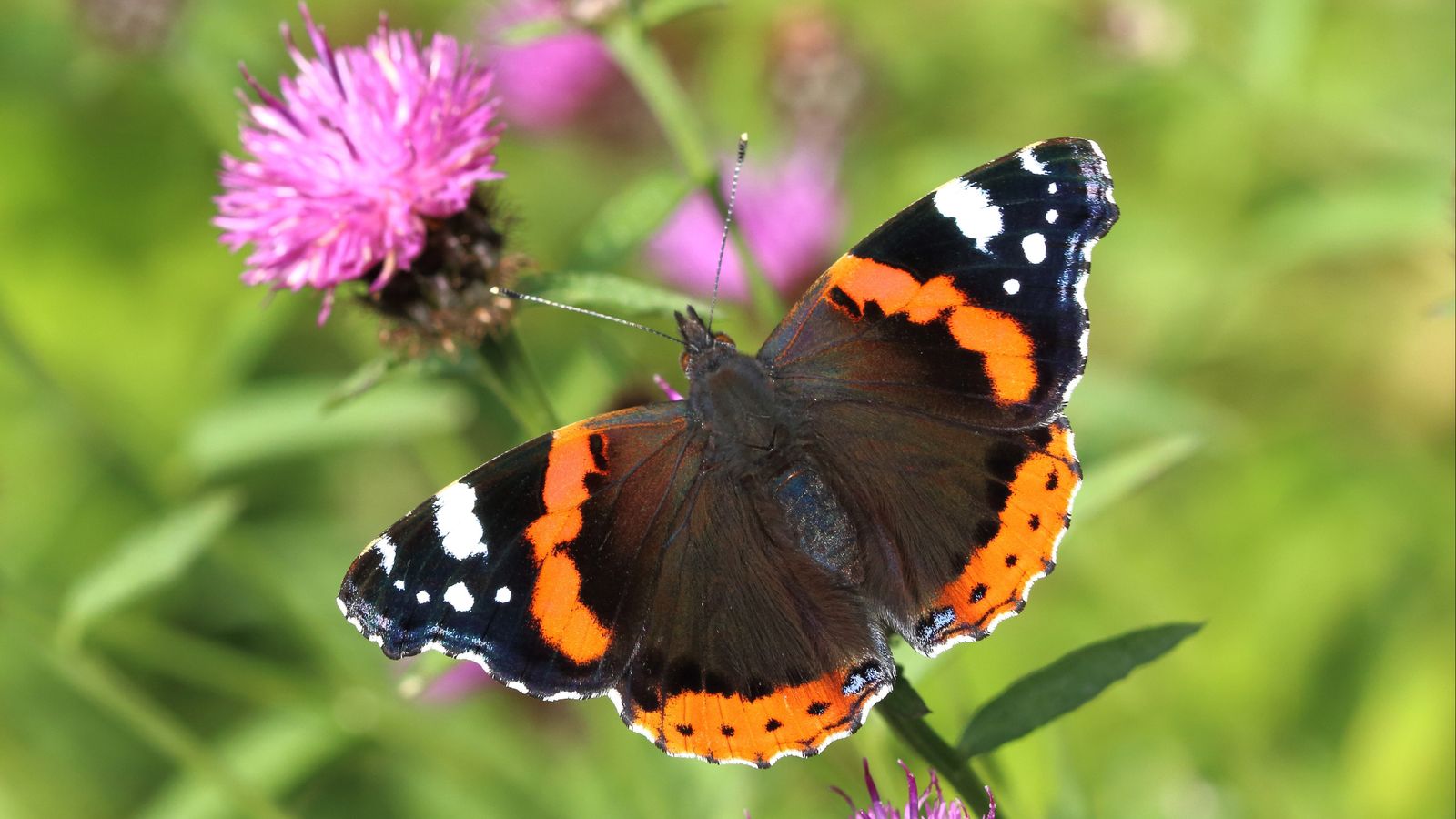Red Admiral butterfly numbers have soared by 400% this year, according to new data from Butterfly Conservation, which says the migrant species likes Britain’s warming climate.
Wildlife charity, Butterfly Conservation, revealed a huge surge in sightings of the Red Admiral, a migrant species of butterfly, as the big butterfly count enters its final week.
The wildlife charity said citizen scientists taking part in its big butterfly count have tallied up 170,000 sightings so far, an enormous increase on last year.
“There can be no doubt that climate change is the driver behind a long-term increase in Red Admiral numbers,” the charity said.
Each spring and into summer the “garden favourite” usually travels north from North Africa and continental Europe to the UK to lay eggs, hence the boom in fresh butterflies from July onwards.
But in recent years, scientists have detected an increase in numbers, and signs the species is now overwintering in the UK, particularly in the South of England, the charity said.
The decade from 2012 to 2021 was on average 1.0C warmer than the 1961 to 1990 average in the UK.
Venice could be added to danger list after ‘insufficient’ measures to tackle mass tourism and climate change
Iran announces nationwide shutdown due to soaring heat
Greek PM Kyriakos Mitsotakis offers free holiday to tourists who fled Rhodes wildfires
Last year was the UK’s hottest year on record, with an average year-round temperature above 10C seen for the first time.
The Met Office projects UK winters will become warmer and wetter on average, although cold or dry winters will still occur sometimes.
Please use Chrome browser for a more accessible video player
As temperatures increase, the Red Admiral’s need to return to its southerly winter habitat is reducing, Butterfly Conservation said, meaning “it is possible we will see a greater number of the species spending the winter in the UK”.
Dr Zoe Randle, senior surveys officer at Butterfly Conservation explains: “We’ve been surprised to see the Red Admiral taking the lead, however with the increased frequency of warm weather, the UK may well become a permanent home for this species.”
Read more:
Scientists warn deadly extreme heat ‘rapidly on the rise’
Sunak says climate targets must not impose ‘unnecessary’ costs
Without the many members of the public taking part in the big butterfly count, “we couldn’t get the depth and breadth of data”, she said.
“We’re calling on people across the UK to please get out for the count and record your butterfly sightings over the next few days.
“With climate change here to stay, we need people to take part more than ever before and help us understand how extreme weather is affecting our butterflies.”







